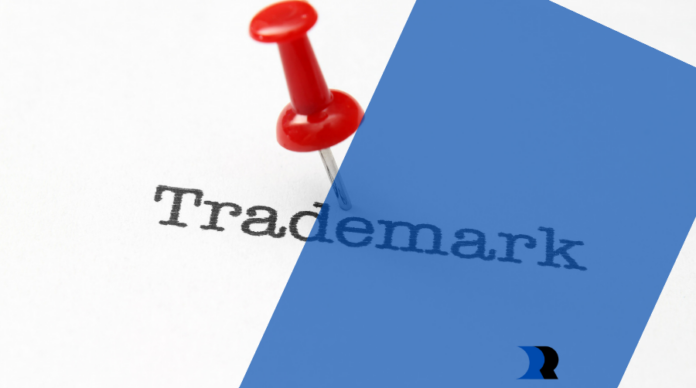Whether you’re a business owner, a creative professional, or simply someone who wants to safeguard your work, it is important to know about trademarks and copyright.
When dealing with trademark and copyright matters, you need the guidance of an expert. Orange County trademark lawyer Karen P. Adraneda even explained how an experienced trademark attorney can help you obtain a trademark for your business.
But what is the difference between a trademark and a copyright? Trademarks and copyrights are both forms of intellectual property protection, but they address different aspects of creative or scholarly works and serve various purposes.
Let’s study more about the distinction between these two, how they can protect your rights, and how to avoid potential legal issues down the line.
Definition of Trademark and Copyright
A trademark is a type of intellectual property that protects brand names, logos, and slogans used with goods or services. It helps consumers identify and distinguish the source of a product or service from others in the marketplace. Companies can register trademarks with government agencies for legal protection and exclusive rights to use the mark in commerce.
Copyright is a form of legal protection that grants exclusive rights to authors and creators of original works, such as books, music, art, and software. It gives the copyright holder the right to reproduce, distribute, display, and perform their original creation. The copyright holder also has the right to create derivative works based on their original creation.
Both trademarks and copyrights protect intellectual property. But they differ in scope and purpose. Trademarks protect brand identity and consumer confusion. Copyrights protect creative works and promote artistic expression.
Scope of Protection
Trademarks and copyrights provide different levels of protection for intellectual property. You can choose the one most suitable for your creative work or business by understanding the scope of protection each offers.
According to an intellectual property attorney in Denver, trademarks are an asset to your business because they represent your brand’s quality and reputation. Trademarks primarily protect branding elements such as logos, names, and slogans. They allow companies to establish and protect their unique identity in the marketplace. When you register a trademark, you gain exclusive rights to use that mark in connection with the goods or services it represents. This prevents others from using similar marks that could confuse consumers.

Copyright protects original works of authorship, such as books, music, and artwork. It gives creators the exclusive right to reproduce, distribute, display, and perform their works. Protection applies automatically upon creation, without the need for registration. However, registering your copyright can provide additional benefits.
While trademarks focus on preventing consumer confusion, copyright aims to protect the expression of creative ideas.
Duration of Protection
Trademarks offer protection for an indefinite period. They must be continuously used in commerce and renewed according to the laws of the respective country. This means that as long as you continue to use your trademark in connection with your goods or services, you can maintain its protection indefinitely.
Copyrights are only valid for a limited period. In most countries, including the United States, copyright protection lasts for the life of the author. After that, it lasts an extra 70 years. This means that the copyright protection for a work begins from the moment it’s created. After their death, it lasts for an additional 70 years. After this period, the work enters the public domain. Anyone can use it freely, without needing permission or payment.
Types of Rights Granted
By obtaining a trademark, you’re granted the exclusive right to use that mark in connection with your goods or services. This means others can’t use a similar mark that might confuse consumers.
Copyright protects original works of art. This includes literary, artistic, musical, and dramatic works. When you obtain a copyright, you’re granted the exclusive right to reproduce, distribute, display, perform, and create derivative works based on your original work. This allows you to control how your work is used. It also prevents others from copying or using it without your permission.
Trademarks and copyrights grant different types of rights. While trademarks protect the brand identity, copyrights focus on protecting the expression of creative ideas.
Enforcement and Remedies
To protect your intellectual property, you must understand the enforcement and remedies for trademark and copyright infringement. Holders have legal options to enforce their rights and seek remedies for any infringement.
When it comes to trademark infringement, the first step is sending a cease and desist letter to the infringing party. This letter is a formal warning that requests them to stop using the trademarked material. If the infringing party doesn’t comply, the trademark holder can file a lawsuit. A successful lawsuit may result in injunctive relief, which stops the infringing party from using the trademark, and monetary damages to compensate for any harm caused.

The process for copyright infringement is similar. The copyright holder can start by sending a cease and desist letter. If necessary, they can follow up with a lawsuit. In addition to injunctive relief and monetary damages, copyright infringement may also lead to the impoundment or destruction of the materials.
Conclusion
A clear understanding of the distinction between trademark and copyright is important. While both offer legal protection, trademarks focus on brand recognition, while copyright protects creative expression. Keeping these differences in mind can help individuals and businesses navigate the intellectual property landscape successfully.


